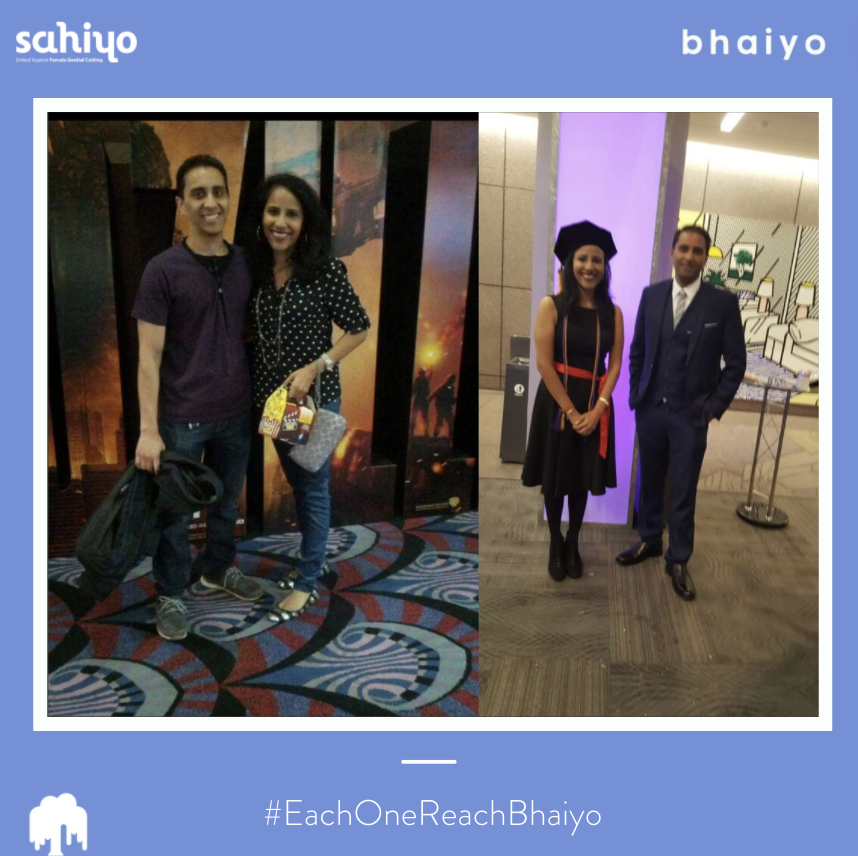In honor of International Women’s Day on March 8th, Sahiyo launched our campaign “Each One, Reach Bhaiyo.” During this campaign, Sahiyo encouraged community members to reach out to and educate at least one male-identifying person in their life about female genital cutting (FGC). Through this campaign we involved men in the important work of protecting women and girls. We know that just one conversation can spark a global change towards preventing the human rights violation that is FGC amongst future generations. Learn more here.
Why did you want to reach out to a man in your life to discuss FGM/C?
I decided to reach out to my two older brothers and talk about FGM/C, in order to bring more men into the space of advocating to end harmful practices against women and girls.
I chose my brothers because, in addition to knowing they could not say “no” to me as the only girl and the youngest of us three, I knew this would appeal to their sense of compassion, empathy, and humanity. I also know they both have platforms which they could use to ignite conversations around the harmful consequences of FGM/C; my eldest brother works in foreign affairs and my elder brother is a doctor who specializes in infectious diseases and internal medicine.
What was his reaction?
Both were shocked to learn that the practice of FGM/C existed. They also expressed sentiments of outrage and disappointment upon learning just how many women and girls around the world have had to endure this practice and the fact that millions more continue to be at risk.
My eldest brother shared with me the next day a recollection that a female co-worker had confided in him several years ago about being subjected to such a practice when she was just a child. At the time he had not connected the dots and recognized it as being FGM/C or had the terminology to call it such, and only made the connection after I had spoken to him about it.
Since our initial conversation, I have had many conversations with my elder brother around FGM/C and the intersectionality with infectious diseases, as well as the harmful consequences of medicalized FGM/C.
What advice would you give to others trying to reach out to the men in their lives?
Admittedly I do share a close bond with my brothers and they are a central part of my life, so it was easy for me to speak to them and I know that may not necessarily be the case in all instances. What I can say to others, and what I know to be true from my own experience, is conversations like this might be difficult or uncomfortable or daunting or even flat out scary or all of the above, but it is worth it, for the sake of the millions of women and girls who continue to be at risk. Never underestimate the power of one single voice to make a difference in the life of someone else. Up until I spoke to my eldest brother, I had no knowledge or evidence that FGM/C was even an existent practice in the Eastern Caribbean, and all it took was one conversation to change that.

